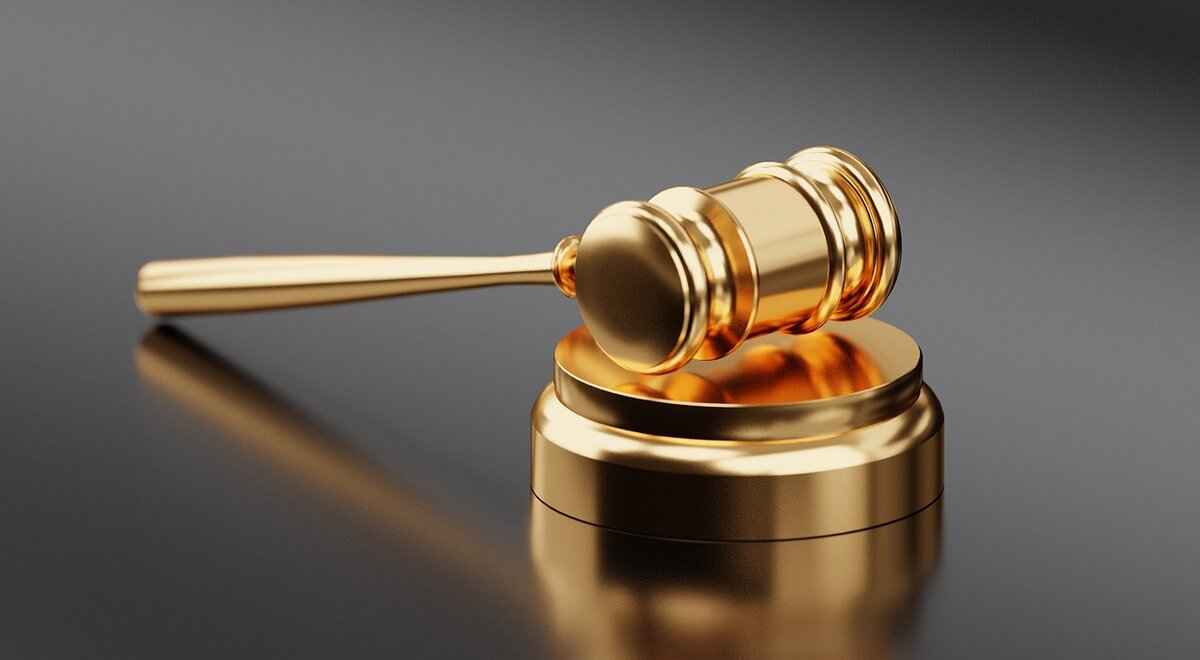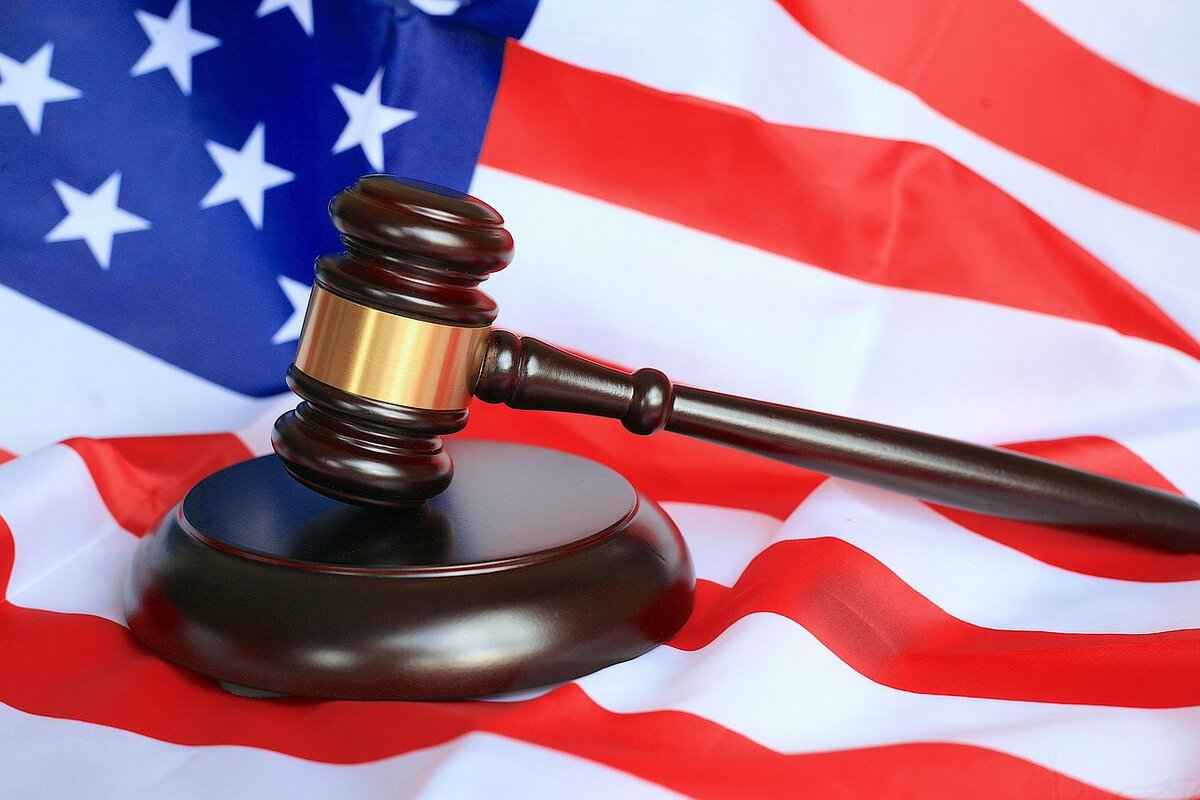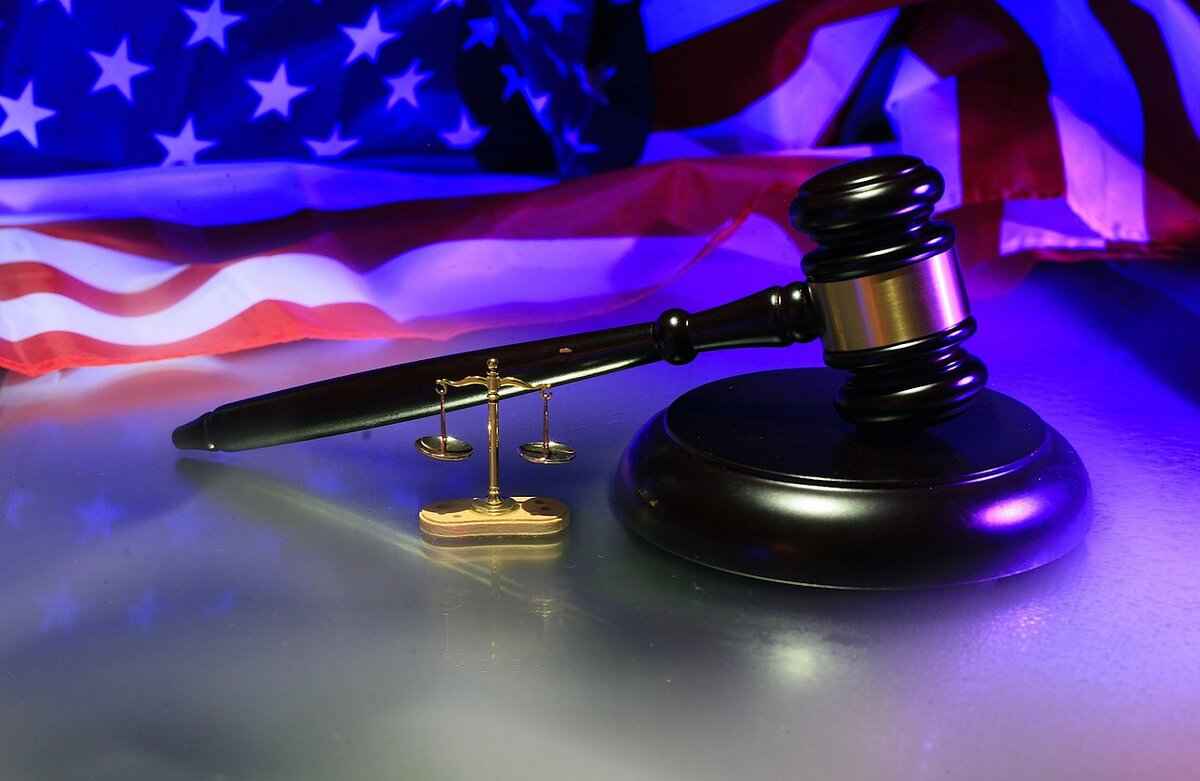This article delves into the intricate world of legal outcomes, revealing how it is entirely possible to lose a lawsuit even when you possess factual correctness on your side. Understanding the multifaceted nature of legal proceedings is vital for anyone navigating the complex waters of litigation.
Understanding the Legal System
The legal system in the United States is multifaceted and varies greatly across different jurisdictions. This variability can significantly influence the outcomes of lawsuits, sometimes overshadowing the actual merits of a case. Factors such as local laws, procedural rules, and even the specific court in which a case is filed can alter the trajectory of a lawsuit.
The Burden of Proof
In civil litigation, the burden of proof generally rests with the plaintiff. This means that the plaintiff must produce sufficient evidence to substantiate their claims. The subjective nature of this requirement can lead to unexpected outcomes, even when one party feels they are in the right.
- Preponderance of Evidence: In most civil cases, the standard is the preponderance of evidence, which requires the plaintiff to demonstrate that their claims are more likely true than not. This standard can be subjective and challenging to meet.
- Defining Preponderance: The term “preponderance” indicates that the evidence must tip the scales in favor of one side. Even when individuals believe they are correct, proving this in court can be a daunting task.
- Impact of Evidence Quality: The quality and credibility of the evidence presented play a crucial role in determining the outcome of a case. Even straightforward facts can be undermined by weak evidence.
Legal Representation
The effectiveness of legal representation cannot be overstated. A skilled attorney can make a significant difference in the outcome of a lawsuit, regardless of the factual correctness of the case. Their ability to present evidence, craft persuasive arguments, and navigate procedural intricacies is essential.
Judicial Discretion
Judges possess considerable discretion in interpreting laws and assessing evidence. This discretion can lead to unpredictable outcomes that may not align with the factual correctness of a case.
- Judicial Bias: Whether conscious or unconscious, judicial bias can influence decisions, potentially resulting in a loss for a party that is factually correct.
- Legal Precedents: Established legal precedents can significantly shape case outcomes, sometimes overriding the merits of a specific situation in favor of previously decided rulings.
Jury Dynamics
When a case is presented before a jury, the dynamics within the jury can dramatically impact the verdict. Factors such as jury members’ perceptions, emotions, and biases can lead to outcomes that seem unjust.
- Jury Perception: Jurors may be influenced by the presentation style of attorneys or their personal biases, which can skew their understanding of the evidence.
- Deliberation Process: The deliberation process is inherently subjective; jurors may interpret evidence in varying ways, leading to unexpected verdicts.
Settlement Considerations
Many lawsuits are settled out of court, which can result in parties losing their rights to a trial outcome, even if they believe they are justified in their claims.
- Cost-Benefit Analysis: Litigants often weigh the costs of continuing litigation against the potential benefits, leading to settlements that may not reflect the true merits of the case.
- Pressure to Settle: Parties may face pressure from attorneys or external influences to settle, even when they feel they have a strong case, resulting in a loss of potential victory.
In conclusion, the legal system is fraught with complexities that can lead to unexpected outcomes, even when one party is factually correct. By understanding these nuances, individuals can better navigate the challenges of litigation.

Understanding the Legal System
The legal system in the United States is a complex framework that governs how laws are interpreted and enforced. It is important to recognize that this system is not uniform across the nation; rather, it varies significantly from one jurisdiction to another. This variation can have profound implications for the outcome of lawsuits, often leading to unexpected results, even when one party is factually correct.
Variability Across Jurisdictions
Each state has its own set of laws and regulations, which means that the same case could yield different outcomes depending on where it is tried. For instance, contract law can differ widely, with some states favoring strict enforcement of terms while others may allow for more lenient interpretations based on circumstances. This inconsistency can create a legal landscape where the merits of a case may not be the sole determinant of its outcome.
The Role of Local Precedents
Legal precedents established in a particular jurisdiction can also heavily influence case outcomes. Courts often rely on previous rulings to guide their decisions, which means that even if a party presents a strong factual argument, they may be bound by unfavorable precedents. This reliance on case law can sometimes overshadow the substantive issues at hand, leading to a situation where the law does not necessarily align with justice.
The Burden of Proof and Its Implications
In civil litigation, the burden of proof lies with the plaintiff, who must demonstrate that their claims are valid based on the preponderance of evidence. This standard, while seemingly straightforward, can be subjective and open to interpretation. The plaintiff must convince the court that their version of events is more likely true than not, a task that can be daunting even when they possess compelling evidence.
- Evidence Quality: The quality and credibility of the evidence presented can significantly impact the case outcome. A well-documented claim can falter if the evidence lacks credibility or is poorly presented.
- Witness Testimonies: The reliability of witnesses can also sway a jury’s decision. If a jury finds a witness untrustworthy, the entire case may be undermined, regardless of the factual correctness of the claims.
Judicial Discretion and Its Impact
Judges in the United States often have considerable discretion in interpreting laws and assessing evidence. This discretion can lead to unpredictable outcomes, as judges may have differing opinions on legal principles or the weight of evidence. Furthermore, judicial bias, whether conscious or unconscious, can influence decisions, resulting in a verdict that may not align with the facts of the case.
Jury Dynamics and Their Influence
When cases are presented before a jury, the dynamics within the jury can play a critical role in the final verdict. Jurors bring their own biases and experiences into the deliberation room, which can affect how they perceive the evidence and arguments presented. Emotional appeals made by attorneys or the overall presentation of the case can sway jurors, leading to outcomes that may seem unjust to those involved.
- Jury Deliberation: The deliberation process is inherently subjective, with jurors interpreting evidence through their personal lenses. This subjectivity can lead to unexpected verdicts that do not necessarily reflect the factual correctness of a party’s claims.
- Group Dynamics: The influence of dominant jurors can also skew the deliberation process, potentially overshadowing the voices of others who may hold different views.
Settlement Considerations in Litigation
Many lawsuits are resolved through settlements rather than trials. This reality means that parties may choose to forgo a trial, even if they believe they are in the right. Factors such as the cost of litigation, the time involved, and the uncertainty of trial outcomes often lead parties to settle. The pressure to settle can come from various sources, including legal counsel who may advise that the risks of trial outweigh the potential benefits.
In summary, understanding the intricacies of the legal system is crucial for anyone involved in litigation. The variability in laws across jurisdictions, the burden of proof, judicial discretion, jury dynamics, and settlement pressures all contribute to the complexity of legal outcomes. Being aware of these factors can help individuals navigate the legal landscape more effectively, even in the face of potential challenges.

The Burden of Proof
is a critical concept in civil litigation, determining which party is responsible for proving their claims. In civil cases, it is the plaintiff who bears this burden, meaning they must present sufficient evidence to support their allegations. This requirement can lead to unexpected outcomes, even when the plaintiff believes they have a strong case.
Understanding the nuances of the burden of proof is essential for anyone involved in litigation. The standard of proof in most civil cases is known as the preponderance of evidence. This standard requires the plaintiff to demonstrate that their claims are more likely true than not. The subjective nature of this standard means that the outcome can hinge on subtle interpretations of evidence, rather than the objective truth of the matter.
The term preponderance refers to the idea that the evidence must tip the scales in favor of one party. This does not mean the plaintiff needs to prove their case beyond a reasonable doubt; rather, they must show that there is a greater than 50% likelihood that their claims are accurate. This threshold can be challenging to meet, especially when the evidence is circumstantial or when there are competing narratives.
The quality and credibility of the evidence presented can significantly impact the outcome of a case. High-quality evidence, such as expert testimony or documented records, can bolster a plaintiff’s position. Conversely, weak or questionable evidence can undermine even the most compelling claims. It is crucial for plaintiffs to assess the strength and reliability of their evidence before proceeding.
Another factor influencing the burden of proof is the effectiveness of legal representation. Skilled attorneys understand how to present evidence persuasively and can navigate the complexities of the legal system. Their ability to articulate a compelling narrative can make a significant difference in how the evidence is perceived by the judge or jury.
Judges hold significant discretion in interpreting laws and assessing the evidence presented. This discretion can lead to unpredictable outcomes, as different judges may weigh evidence differently. Furthermore, judicial biases—whether conscious or unconscious—can also affect decisions, potentially resulting in a loss for a party that is factually correct.
Legal precedents can also shape the burden of proof in civil cases. Established rulings may take precedence over the specific merits of a case, leading to outcomes that seem unjust. Plaintiffs must be aware of relevant precedents and how they may influence their case.
When a case is tried before a jury, the dynamics of the jury can significantly impact the verdict. Jury members bring their own perceptions, biases, and emotions into the deliberation process. This subjectivity can lead to outcomes that may not align with the factual correctness of a party’s claims.
Jury members’ perceptions can be swayed by the presentation style of attorneys or the emotional weight of the evidence. The deliberation process itself is inherently subjective, with jurors interpreting evidence in ways that may differ from one another. This can result in unexpected verdicts, even when the evidence seems clear-cut.
Many civil cases are settled out of court, which means that parties may forfeit their rights to a trial outcome, even if they believe they are in the right. The pressures of litigation, including the costs involved and the uncertainties of trial, often lead parties to consider settlements.
Litigants frequently conduct a cost-benefit analysis to weigh the expenses of continuing litigation against the potential benefits of a favorable verdict. This analysis can compel parties to settle, even when they feel confident in their case, resulting in a loss of what they believe to be a rightful victory.
Additionally, litigants may face pressure from attorneys or other parties to agree to a settlement. This pressure can lead to compromises that do not reflect the true merits of the case, ultimately resulting in a loss for the party that is factually correct.
Preponderance of Evidence
The concept of is a fundamental principle in civil litigation, often determining the outcome of lawsuits. This standard requires the plaintiff to demonstrate that their claims are more likely true than not, which can introduce complexities into the legal process.
In essence, the standard means that the evidence presented must tip the scales in favor of one party over another. This is a lower burden of proof compared to the beyond a reasonable doubt standard used in criminal cases. In civil matters, the plaintiff must provide sufficient evidence to convince the judge or jury that their version of events is more credible.
The burden of proof in civil cases lies with the plaintiff. This means they are responsible for gathering and presenting evidence that supports their claims. If they fail to meet this burden, they risk losing the case, regardless of whether they believe they are factually correct. The subjective nature of the standard can lead to unexpected outcomes where a party may feel they have a strong case based on facts but ultimately lose due to insufficient evidence.
While the quantity of evidence may seem important, the quality and credibility of the evidence can play a more significant role in the outcome. For instance, a single piece of strong evidence can outweigh numerous weaker pieces. Therefore, plaintiffs must focus on presenting compelling and credible evidence to support their claims.
The effectiveness of legal representation is crucial in navigating the complexities of the standard. An experienced attorney can help in crafting a persuasive narrative, selecting the right evidence, and presenting it effectively to the court. The ability to articulate the significance of evidence can greatly influence a judge or jury’s perception.
Judges possess considerable discretion in interpreting the evidence presented before them. Their individual perspectives and experiences can shape how they assess the preponderance of evidence. This subjectivity can lead to varying outcomes in similar cases, underscoring the unpredictability of civil litigation.
When cases are decided by a jury, the dynamics of the jury can significantly impact the verdict. Jurors bring their own biases and perceptions into the deliberation room, which can influence how they interpret the evidence. The deliberation process is inherently subjective, and jurors may weigh evidence differently, leading to outcomes that may seem unjust to one party.
Many civil cases are resolved through settlement rather than trial. This means that parties may choose to settle even if they believe they are right, often weighing the costs of litigation against the potential benefits of a trial outcome. The pressure to settle can lead to decisions that do not necessarily reflect the merits of the case, resulting in a loss of potential victory.
Understanding the standard is essential for anyone involved in civil litigation. It highlights the importance of quality evidence, effective legal representation, and the subjective nature of judicial and jury decision-making. By recognizing these factors, parties can better navigate the complexities of the legal system and improve their chances of a favorable outcome.
preponderance of evidence,
Understanding Preponderance of Evidence in Legal Contexts
The legal principle of preponderance of evidence is a cornerstone in civil litigation in the United States. It refers to the standard of proof that requires a party to demonstrate that their claims are more likely true than not. This article delves into the intricacies of this standard, its implications, and the factors that can influence its application in legal cases.
What is Preponderance of Evidence?
In civil cases, the burden of proof lies with the plaintiff. This means that the plaintiff must provide enough evidence to convince the judge or jury that their version of events is more credible than the opposing party’s. The term preponderance indicates that the evidence must tip the scales in favor of one side, often quantified as needing to exceed a 50% likelihood of truth.
Factors Influencing Preponderance of Evidence
- Quality of Evidence: The strength and reliability of the evidence presented can significantly impact the outcome. High-quality evidence can sway a decision even if the factual basis seems straightforward.
- Credibility of Witnesses: Witnesses play a crucial role in establishing the preponderance of evidence. Their credibility can be a deciding factor in how the evidence is perceived.
- Legal Representation: The effectiveness of an attorney in presenting evidence and arguments can greatly influence the outcome of a case. Skilled attorneys can frame evidence in a way that resonates with judges and juries.
Judicial Discretion and Its Impact
Judges have considerable discretion in interpreting the law and assessing the evidence presented. This discretion can lead to unpredictable outcomes, as judges may have different thresholds for what constitutes a preponderance of evidence.
Jury Dynamics in Civil Cases
When a case is presented to a jury, the dynamics of the jury can also affect the application of the preponderance standard. Jurors may be influenced by emotional appeals or the presentation style of the attorneys, which can lead to outcomes that may seem unjust from a purely factual standpoint.
Challenges in Proving Preponderance
Even when a party believes they are factually correct, proving preponderance can be challenging. Factors such as juror biases, the emotional weight of the case, and the overall presentation can all play significant roles in the final verdict.
Settlement Considerations
Many cases are settled out of court, which can result in parties foregoing their right to a trial outcome based on the preponderance of evidence. In such cases, parties often engage in a cost-benefit analysis to determine whether pursuing litigation is worth the potential benefits versus the costs involved.
Pressure to Settle
Litigants may face pressure from various sources, including attorneys and opposing parties, to settle their cases. This pressure can lead to settlements that do not necessarily reflect the true merits of the case or the preponderance of evidence.
Conclusion
Understanding the concept of preponderance of evidence is crucial for anyone involved in civil litigation. It highlights the complexities of legal proceedings where factual correctness does not always guarantee a favorable outcome. By recognizing the various factors that influence this standard, parties can better prepare for the realities of the legal system.
requiring the plaintiff to show that their claims are more likely true than not, which can be subjective.
Can I Lose a Lawsuit Even If I Am Right?
This article explores the complexities of legal outcomes, addressing the factors that can lead to losing a lawsuit despite being factually correct. Understanding these nuances is essential for anyone involved in litigation.
Understanding the Legal System
The legal system can be intricate and varies significantly from one jurisdiction to another, influencing the outcome of lawsuits regardless of the merits of a case.
The Burden of Proof
In civil cases, the burden of proof lies with the plaintiff, meaning they must provide sufficient evidence to support their claims. This requirement can lead to unexpected outcomes, even when a plaintiff believes they are right.
- Preponderance of Evidence: In most civil cases, the standard is the preponderance of evidence, requiring the plaintiff to show that their claims are more likely true than not. This can be subjective and open to interpretation.
- Defining Preponderance: Preponderance means that the evidence must tip the scales in favor of one side, which can be challenging even when one believes they are right.
- Impact of Evidence Quality: The quality and credibility of evidence presented can significantly affect the outcome, even if the underlying facts seem straightforward.
Legal Representation
The effectiveness of legal representation can play a crucial role in the outcome of a lawsuit, regardless of the factual correctness of a case. An experienced attorney can make a significant difference in presenting evidence and arguing legal points.
Judicial Discretion
Judges often have considerable discretion in interpreting laws and assessing evidence, which can lead to unpredictable outcomes in lawsuits.
- Judicial Bias: Judicial bias, whether conscious or unconscious, can influence decisions, potentially leading to a loss even when a party is factually correct.
- Legal Precedents: Existing legal precedents can shape the outcome of a case, sometimes overriding the merits of a specific situation in favor of established rulings.
Jury Dynamics
When a case is tried before a jury, the dynamics of the jury can significantly impact the verdict, regardless of the factual correctness of a party’s claims.
- Jury Perception: Jury members’ perceptions can be swayed by emotions, biases, or even the presentation style of attorneys, leading to outcomes that may seem unjust.
- Deliberation Process: The deliberation process is inherently subjective, and jurors may interpret evidence differently, which can lead to unexpected verdicts.
Settlement Considerations
Many lawsuits are settled out of court, which means parties may lose their rights to a trial outcome, even if they believe they are in the right.
- Cost-Benefit Analysis: Parties often weigh the costs of continuing litigation against the potential benefits, leading to settlements that may not reflect the true merits of the case.
- Pressure to Settle: Litigants may face pressure from attorneys or other parties to settle, even if they feel they have a strong case, resulting in a loss of potential victory.
In conclusion, the complexities of the legal system mean that being factually correct does not guarantee a favorable outcome in a lawsuit. Factors such as the burden of proof, quality of evidence, legal representation, judicial discretion, jury dynamics, and settlement pressures all play critical roles in determining the final verdict. Understanding these elements is essential for anyone navigating the legal landscape.
Defining
Can I Lose a Lawsuit Even If I Am Right?
This article explores the complexities of legal outcomes, addressing the factors that can lead to losing a lawsuit despite being factually correct. Understanding these nuances is essential for anyone involved in litigation.
Understanding the Legal System
The legal system can be intricate and varies significantly from one jurisdiction to another, influencing the outcome of lawsuits regardless of the merits of a case.
The Burden of Proof
In civil cases, the burden of proof lies with the plaintiff, meaning they must provide sufficient evidence to support their claims, which can lead to unexpected outcomes.
- Preponderance of Evidence: In most civil cases, the standard is the preponderance of evidence, requiring the plaintiff to show that their claims are more likely true than not, which can be subjective.
- Defining Preponderance: Preponderance means that the evidence must tip the scales in favor of one side, which can be challenging even when one believes they are right.
- Impact of Evidence Quality: The quality and credibility of evidence presented can significantly affect the outcome, even if the underlying facts seem straightforward.
Legal Representation
The effectiveness of legal representation can play a crucial role in the outcome of a lawsuit, regardless of the factual correctness of a case.
Judicial Discretion
Judges often have considerable discretion in interpreting laws and assessing evidence, which can lead to unpredictable outcomes in lawsuits.
- Judicial Bias: Judicial bias, whether conscious or unconscious, can influence decisions, potentially leading to a loss even when a party is factually correct.
- Legal Precedents: Existing legal precedents can shape the outcome of a case, sometimes overriding the merits of a specific situation in favor of established rulings.
Jury Dynamics
When a case is tried before a jury, the dynamics of the jury can significantly impact the verdict, regardless of the factual correctness of a party’s claims.
- Jury Perception: Jury members’ perceptions can be swayed by emotions, biases, or even the presentation style of attorneys, leading to outcomes that may seem unjust.
- Deliberation Process: The deliberation process is inherently subjective, and jurors may interpret evidence differently, which can lead to unexpected verdicts.
Settlement Considerations
Many lawsuits are settled out of court, which means parties may lose their rights to a trial outcome, even if they believe they are in the right.
- Cost-Benefit Analysis: Parties often weigh the costs of continuing litigation against the potential benefits, leading to settlements that may not reflect the true merits of the case.
- Pressure to Settle: Litigants may face pressure from attorneys or other parties to settle, even if they feel they have a strong case, resulting in a loss of potential victory.
In conclusion, understanding these factors is crucial for anyone involved in litigation. The legal landscape can be unpredictable, and being right does not guarantee a favorable outcome in court.
Preponderance
Can I Lose a Lawsuit Even If I Am Right? This article explores the complexities of legal outcomes, addressing the factors that can lead to losing a lawsuit despite being factually correct. Understanding these nuances is essential for anyone involved in litigation.
Understanding the Legal System
The legal system can be intricate and varies significantly from one jurisdiction to another, influencing the outcome of lawsuits regardless of the merits of a case. To navigate this system effectively, one must grasp its fundamental components.
The Burden of Proof
In civil cases, the burden of proof lies with the plaintiff. This means they must provide sufficient evidence to support their claims, which can lead to unexpected outcomes. The standard of proof can vary, but it is often the preponderance of evidence.
- Preponderance of Evidence: In most civil cases, this standard requires the plaintiff to show that their claims are more likely true than not, which can be subjective.
- Defining Preponderance: It means that the evidence must tip the scales in favor of one side, which can be challenging even when one believes they are right.
- Impact of Evidence Quality: The quality and credibility of evidence presented can significantly affect the outcome, even if the underlying facts seem straightforward.
Legal Representation
The effectiveness of legal representation can play a crucial role in the outcome of a lawsuit, regardless of the factual correctness of a case. A skilled attorney can make a significant difference in how evidence is presented and interpreted.
Judicial Discretion
Judges often have considerable discretion in interpreting laws and assessing evidence, which can lead to unpredictable outcomes in lawsuits. This discretion can sometimes favor one party over another.
- Judicial Bias: Judicial bias, whether conscious or unconscious, can influence decisions, potentially leading to a loss even when a party is factually correct.
- Legal Precedents: Existing legal precedents can shape the outcome of a case, sometimes overriding the merits of a specific situation in favor of established rulings.
Jury Dynamics
When a case is tried before a jury, the dynamics of the jury can significantly impact the verdict, regardless of the factual correctness of a party’s claims.
- Jury Perception: Jury members’ perceptions can be swayed by emotions, biases, or even the presentation style of attorneys, leading to outcomes that may seem unjust.
- Deliberation Process: The deliberation process is inherently subjective, and jurors may interpret evidence differently, which can lead to unexpected verdicts.
Settlement Considerations
Many lawsuits are settled out of court, which means parties may lose their rights to a trial outcome, even if they believe they are in the right. This can occur for several reasons.
- Cost-Benefit Analysis: Parties often weigh the costs of continuing litigation against the potential benefits, leading to settlements that may not reflect the true merits of the case.
- Pressure to Settle: Litigants may face pressure from attorneys or other parties to settle, even if they feel they have a strong case, resulting in a loss of potential victory.
In conclusion, even if you believe you are right, the outcome of a lawsuit can be influenced by numerous factors, from the burden of proof to jury dynamics and legal representation. Understanding these elements is crucial for anyone engaged in legal proceedings.
Can I Lose a Lawsuit Even If I Am Right?
This article explores the complexities of legal outcomes, addressing the factors that can lead to losing a lawsuit despite being factually correct. Understanding these nuances is essential for anyone involved in litigation.
Understanding the Legal System
The legal system can be intricate and varies significantly from one jurisdiction to another, influencing the outcome of lawsuits regardless of the merits of a case. Each court may interpret laws differently, which can impact the results of a lawsuit.
The Burden of Proof
In civil cases, the burden of proof lies with the plaintiff, meaning they must provide sufficient evidence to support their claims. This requirement can lead to unexpected outcomes even when the plaintiff believes they are right.
- Preponderance of Evidence: In most civil cases, the standard is the preponderance of evidence, requiring the plaintiff to show that their claims are more likely true than not, which can be subjective.
- Defining Preponderance: Preponderance means that the evidence must tip the scales in favor of one side, which can be challenging even when one believes they are right.
- Impact of Evidence Quality: The quality and credibility of evidence presented can significantly affect the outcome, even if the underlying facts seem straightforward.
Legal Representation
The effectiveness of legal representation can play a crucial role in the outcome of a lawsuit, regardless of the factual correctness of a case. A skilled attorney can present evidence more persuasively, potentially swaying the decision in their client’s favor.
Judicial Discretion
Judges often have considerable discretion in interpreting laws and assessing evidence, which can lead to unpredictable outcomes in lawsuits. This discretion can sometimes favor one party over another based on the judge’s perspective.
- Judicial Bias: Judicial bias, whether conscious or unconscious, can influence decisions, potentially leading to a loss even when a party is factually correct.
- Legal Precedents: Existing legal precedents can shape the outcome of a case, sometimes overriding the merits of a specific situation in favor of established rulings.
Jury Dynamics
When a case is tried before a jury, the dynamics of the jury can significantly impact the verdict, regardless of the factual correctness of a party’s claims. Jurors bring their own experiences and biases into the deliberation room.
- Jury Perception: Jury members’ perceptions can be swayed by emotions, biases, or even the presentation style of attorneys, leading to outcomes that may seem unjust.
- Deliberation Process: The deliberation process is inherently subjective, and jurors may interpret evidence differently, which can lead to unexpected verdicts.
Settlement Considerations
Many lawsuits are settled out of court, which means parties may lose their rights to a trial outcome, even if they believe they are in the right. Settlements can be influenced by various factors beyond the actual merits of the case.
- Cost-Benefit Analysis: Parties often weigh the costs of continuing litigation against the potential benefits, leading to settlements that may not reflect the true merits of the case.
- Pressure to Settle: Litigants may face pressure from attorneys or other parties to settle, even if they feel they have a strong case, resulting in a loss of potential victory.
In summary, the legal landscape is complex, and many factors can lead to losing a lawsuit even when one is factually correct. From the burden of proof and quality of evidence to judicial discretion and jury dynamics, understanding these elements is crucial for anyone involved in litigation.
Preponderance
Can I Lose a Lawsuit Even If I Am Right?
This article delves into the complexities of legal outcomes, particularly focusing on the concept of of evidence. Understanding these nuances is essential for anyone involved in litigation.
Understanding the Legal System
The legal system can be intricate and varies significantly from one jurisdiction to another. This variability can influence the outcome of lawsuits, regardless of the merits of a case. Factors such as local laws, judicial interpretations, and procedural rules can all play a crucial role.
The Burden of Proof
In civil cases, the burden of proof lies with the plaintiff, meaning they must provide sufficient evidence to support their claims. This requirement can lead to unexpected outcomes, even when the plaintiff believes they are factually correct.
- Preponderance of Evidence: In most civil cases, the standard is the preponderance of evidence. This requires the plaintiff to show that their claims are more likely true than not, which can be subjective.
- Defining Preponderance: Preponderance means that the evidence must tip the scales in favor of one side. This can be challenging, even for those who believe they are right.
- Impact of Evidence Quality: The quality and credibility of evidence presented can significantly affect the outcome, even if the underlying facts seem straightforward.
Legal Representation
The effectiveness of legal representation can play a crucial role in the outcome of a lawsuit. A skilled attorney can present evidence in a way that resonates with the judge or jury, regardless of the factual correctness of a case.
Judicial Discretion
Judges often have considerable discretion in interpreting laws and assessing evidence. This discretion can lead to unpredictable outcomes in lawsuits, even when one party is factually correct.
- Judicial Bias: Judicial bias, whether conscious or unconscious, can influence decisions, potentially leading to a loss even when a party is factually correct.
- Legal Precedents: Existing legal precedents can shape the outcome of a case, sometimes overriding the merits of a specific situation in favor of established rulings.
Jury Dynamics
When a case is tried before a jury, the dynamics of the jury can significantly impact the verdict. Jury members’ perceptions can be swayed by emotions, biases, or even the presentation style of attorneys.
- Jury Perception: Jury members’ perceptions can lead to outcomes that may seem unjust, regardless of the factual correctness of a party’s claims.
- Deliberation Process: The deliberation process is inherently subjective, and jurors may interpret evidence differently, which can lead to unexpected verdicts.
Settlement Considerations
Many lawsuits are settled out of court, which means parties may lose their rights to a trial outcome, even if they believe they are in the right.
- Cost-Benefit Analysis: Parties often weigh the costs of continuing litigation against the potential benefits, leading to settlements that may not reflect the true merits of the case.
- Pressure to Settle: Litigants may face pressure from attorneys or other parties to settle, even if they feel they have a strong case, resulting in a loss of potential victory.
In summary, the concept of of evidence plays a crucial role in determining legal outcomes. Despite being factually correct, various factors such as the burden of proof, judicial discretion, and jury dynamics can lead to unexpected results in lawsuits. Understanding these complexities is vital for anyone navigating the legal system.
means that the evidence must tip the scales in favor of one side, which can be challenging even when one believes they are right.
Can I Lose a Lawsuit Even If I Am Right?
This article explores the complexities of legal outcomes, addressing the factors that can lead to losing a lawsuit despite being factually correct. Understanding these nuances is essential for anyone involved in litigation.
Understanding the Legal System
The legal system can be intricate and varies significantly from one jurisdiction to another, influencing the outcome of lawsuits regardless of the merits of a case. Each state has its own laws and procedures, which can impact the way cases are adjudicated.
The Burden of Proof
In civil cases, the burden of proof lies with the plaintiff, meaning they must provide sufficient evidence to support their claims, which can lead to unexpected outcomes. This requirement can be particularly challenging when evidence is circumstantial.
- Preponderance of Evidence: In most civil cases, the standard is the preponderance of evidence, requiring the plaintiff to show that their claims are more likely true than not, which can be subjective.
- Defining Preponderance: Preponderance means that the evidence must tip the scales in favor of one side, which can be challenging even when one believes they are right.
- Impact of Evidence Quality: The quality and credibility of evidence presented can significantly affect the outcome, even if the underlying facts seem straightforward.
Legal Representation
The effectiveness of legal representation can play a crucial role in the outcome of a lawsuit, regardless of the factual correctness of a case. A skilled attorney can present evidence in a way that resonates with judges and juries alike.
Judicial Discretion
Judges often have considerable discretion in interpreting laws and assessing evidence, which can lead to unpredictable outcomes in lawsuits. This discretion can sometimes result in decisions that seem unjust from an outside perspective.
- Judicial Bias: Judicial bias, whether conscious or unconscious, can influence decisions, potentially leading to a loss even when a party is factually correct.
- Legal Precedents: Existing legal precedents can shape the outcome of a case, sometimes overriding the merits of a specific situation in favor of established rulings.
Jury Dynamics
When a case is tried before a jury, the dynamics of the jury can significantly impact the verdict, regardless of the factual correctness of a party’s claims. Jurors bring their own experiences and biases into the deliberation room.
- Jury Perception: Jury members’ perceptions can be swayed by emotions, biases, or even the presentation style of attorneys, leading to outcomes that may seem unjust.
- Deliberation Process: The deliberation process is inherently subjective, and jurors may interpret evidence differently, which can lead to unexpected verdicts.
Settlement Considerations
Many lawsuits are settled out of court, which means parties may lose their rights to a trial outcome, even if they believe they are in the right. Settlements can often be a pragmatic choice, despite the desire for vindication.
- Cost-Benefit Analysis: Parties often weigh the costs of continuing litigation against the potential benefits, leading to settlements that may not reflect the true merits of the case.
- Pressure to Settle: Litigants may face pressure from attorneys or other parties to settle, even if they feel they have a strong case, resulting in a loss of potential victory.
In summary, the legal landscape is complex, and being right does not guarantee a favorable outcome. Understanding the nuances of the legal system, including the burden of proof, judicial discretion, and jury dynamics, is crucial for anyone involved in litigation.
Impact of Evidence Quality
The legal landscape is often unpredictable, and one of the most critical factors influencing the outcome of a lawsuit is the quality of evidence presented. Even when the facts seem clear and straightforward, the ability to effectively communicate and substantiate those facts can determine the success or failure of a case.
Evidence quality refers to the credibility, relevance, and reliability of the information presented in court. High-quality evidence not only supports a party’s claims but also resonates with judges and juries. Conversely, even the most compelling facts can fall flat if the evidence is poorly presented or lacks sufficient backing.
- Witness Testimony: The credibility of witnesses can greatly influence the perception of evidence. A witness with a strong reputation or relevant expertise can lend weight to a claim.
- Documentary Evidence: The authenticity of documents, such as contracts or emails, must be established. If there are questions regarding their validity, the evidence may be deemed less credible.
- Expert Opinions: In many cases, expert witnesses are brought in to provide specialized knowledge. The qualifications and credibility of these experts can significantly impact the evidence’s effectiveness.
Evidence must not only be credible but also relevant to the case at hand. Irrelevant evidence can confuse jurors and detract from the main issues. For instance, presenting evidence about a party’s character may be less impactful than evidence directly related to the dispute.
Consistency is another crucial element of evidence quality. When evidence supports one another and aligns with the overall narrative of the case, it creates a stronger argument. Inconsistencies can lead to doubt and weaken a party’s position.
Even when evidence is high quality, its interpretation can be subjective. Different jurors may have varying perspectives, which can lead to differing conclusions based on the same set of facts. This subjectivity underscores the importance of not just presenting evidence, but also framing it effectively to guide interpretation.
In legal proceedings, the burden of proof is a fundamental concept that dictates how evidence is evaluated. In civil cases, the plaintiff must demonstrate that their claims are more likely true than not, known as the preponderance of evidence. This standard means that even a small amount of compelling evidence can sway the outcome, making the quality of that evidence paramount.
The manner in which evidence is presented can also affect its perceived quality. Effective storytelling, clear organization, and engaging delivery can enhance the impact of the evidence. Attorneys must not only understand the evidence but also how to convey it compellingly to the judge or jury.
Ultimately, the quality and credibility of evidence are critical components in the legal process. Even when the underlying facts appear straightforward, the nuances of evidence presentation can lead to unexpected outcomes. Therefore, parties involved in litigation must prioritize the quality of their evidence to enhance their chances of a favorable verdict.
Legal Representation
plays a pivotal role in the outcome of any lawsuit. Many individuals believe that being factually correct is sufficient to win a case; however, the reality is often more complex. This section delves into the importance of legal representation and how it can influence the results of litigation, even when the facts appear to be on one side.
- Expertise in Legal Procedures: An experienced attorney understands the intricate legal procedures that govern a lawsuit. They are familiar with filing deadlines, procedural rules, and court etiquette, which can significantly impact the case’s progress and outcome.
- Strategic Case Management: A skilled lawyer will develop a comprehensive strategy tailored to the specific circumstances of the case. This includes gathering evidence, identifying key witnesses, and determining the most effective arguments to present in court.
- Negotiation Skills: Legal representation is crucial in negotiations, whether during settlement discussions or plea bargains. A seasoned attorney can advocate for their client’s best interests and potentially secure a more favorable outcome than an individual might achieve on their own.
Understanding Legal Nuances
Legal representation is not just about presenting facts; it also involves understanding the nuances of the law. For instance, different jurisdictions may have varying laws that could affect the case’s outcome. A proficient attorney will be well-versed in these differences and can navigate them effectively.
The Role of Communication
Effective communication is another critical aspect of legal representation. Attorneys must clearly articulate their client’s position, both in written documents and oral arguments. The ability to convey complex legal concepts in a way that is understandable to judges and juries can significantly impact the case’s outcome.
Emotional Support and Guidance
Litigation can be a stressful and emotional experience. Having legal representation provides not only practical assistance but also emotional support. Attorneys can help clients manage their expectations, understand the legal process, and remain focused on their objectives.
Access to Resources
Experienced attorneys often have access to various resources that can bolster a case. This may include expert witnesses, investigators, and legal research databases. These resources can provide critical evidence and insights that may not be available to individuals representing themselves.
Reputation and Credibility
The reputation of an attorney can also play a significant role in the outcome of a case. Judges and opposing counsel may be more inclined to take an attorney seriously if they have a track record of success and a respected standing within the legal community. This can lead to more favorable negotiations and outcomes.
Conclusion
In summary, while being factually correct is essential, it is not the sole determinant of success in a lawsuit. The effectiveness of legal representation can significantly influence the outcome. Individuals should consider hiring experienced attorneys who can navigate the complexities of the legal system, advocate effectively on their behalf, and provide the necessary support throughout the litigation process.
Judicial Discretion
plays a pivotal role in the American legal system, influencing the outcomes of numerous lawsuits. It refers to the authority granted to judges to make decisions based on their interpretations of laws and the evidence presented in court. This discretion can lead to unpredictable results, even in cases where one party appears to be factually correct.
Judges are tasked with interpreting complex legal statutes and applying them to the unique circumstances of each case. This process often involves subjective judgment, which can result in varied outcomes depending on the judge’s perspective. As a result, two cases with similar facts may yield different verdicts simply due to the judge’s individual interpretation of the law.
- Legal Precedents: Judges often rely on past rulings to guide their decisions. However, existing precedents may not always align perfectly with the current case, leading judges to exercise discretion in their interpretations.
- Judicial Philosophy: A judge’s personal beliefs and judicial philosophy can significantly impact their decisions. For instance, some judges may prioritize strict adherence to the law, while others may consider broader social implications.
- Case Complexity: The intricacies of a case can also affect a judge’s discretion. In complex cases, judges may have more leeway to interpret laws and assess evidence, potentially leading to unpredictable outcomes.
Judicial bias, whether conscious or unconscious, can further complicate the exercise of judicial discretion. Factors such as a judge’s background, personal experiences, and even their emotional state can influence their decisions. This bias can lead to outcomes that may seem unjust, particularly in cases where the facts clearly favor one party.
The quality and type of evidence presented in court can also affect a judge’s discretion. Even when a party believes they have a strong case, if the evidence is not compelling or credible, a judge may rule against them. This underscores the importance of effective legal representation in presenting evidence persuasively.
In criminal cases, judicial discretion is particularly pronounced during sentencing. Judges have the authority to impose varying sentences based on the circumstances of the case, the defendant’s background, and other relevant factors. This flexibility can lead to significant disparities in sentencing, even for similar offenses. For example, a judge may choose to impose a lenient sentence for a first-time offender while delivering a harsher penalty for repeat offenders, reflecting their discretion in balancing justice and rehabilitation.
Decisions made under judicial discretion can be challenged through the appeals process. However, appellate courts typically defer to the original judge’s discretion unless there is clear evidence of abuse of that discretion. This means that even if a party believes a judge made an error in their ruling, overturning that decision can be challenging.
In summary, judicial discretion is a fundamental aspect of the legal system that can lead to unpredictable outcomes in lawsuits. Understanding the factors that influence a judge’s decision-making process is crucial for litigants and their attorneys. By recognizing the complexities of judicial discretion, parties can better prepare for the realities of litigation and the potential for outcomes that may not align with their expectations.
Judicial Bias
is a critical concept within the legal system that can significantly impact the outcome of a case. It refers to the inclination or predisposition of a judge towards one party over another, which can manifest either consciously or unconsciously. This bias can lead to decisions that may not align with the factual correctness of a case, thereby raising concerns about fairness and justice within the legal process.
The implications of judicial bias are profound. When a judge harbors bias, even the most compelling evidence presented by a party may not receive the consideration it deserves. This situation can result in a loss for a party that is factually correct, as the judge’s predisposition can overshadow the merits of the case. Factors contributing to judicial bias can include personal beliefs, past experiences, and even societal influences, which may inadvertently affect a judge’s judgment.
Understanding the impact of judicial bias requires an examination of how it can manifest in various forms:
- Conscious Bias: This occurs when a judge is aware of their preferences and allows them to influence their decisions. Such bias can arise from personal convictions or external pressures.
- Unconscious Bias: Judges may not be aware of their biases, which can stem from societal stereotypes or ingrained beliefs. This type of bias is particularly insidious, as it operates below the level of conscious awareness.
- Implicit Bias: This refers to the attitudes or stereotypes that affect understanding, actions, and decisions in an unconscious manner. Implicit bias can lead to differential treatment of parties based on race, gender, or socioeconomic status.
Judicial bias can also be exacerbated by the judicial discretion that judges possess. Judges have considerable leeway in interpreting laws, assessing evidence, and deciding on procedural matters. While this discretion is essential for a flexible legal system, it can also lead to unpredictable outcomes influenced by personal biases.
Moreover, the legal precedents set by previous cases play a crucial role in shaping judicial decisions. A judge may feel compelled to adhere to established rulings, even when the facts of a current case suggest a different outcome. This adherence can sometimes overshadow the factual correctness of a party’s claims.
In cases tried before a jury, the dynamics of the jury can further complicate matters. Jury members may be influenced by their perceptions, emotions, or biases, which can lead to verdicts that do not accurately reflect the evidence presented. The deliberation process is inherently subjective, and jurors may interpret the same evidence in vastly different ways, potentially leading to unjust outcomes.
As a result, it is essential for litigants to be aware of the potential for judicial bias and its implications on their cases. Engaging competent legal representation can help navigate these complexities. Attorneys play a vital role in presenting evidence effectively and countering any biases that may arise during the proceedings.
In conclusion, while the legal system aims to deliver justice based on factual correctness, judicial bias remains a significant challenge. Understanding the nuances of how bias can influence judicial outcomes is crucial for anyone involved in litigation. By recognizing these factors, parties can better prepare for the realities of the courtroom and seek to mitigate the effects of bias on their cases.
Legal Precedents
play a critical role in the American judicial system, significantly shaping the outcomes of various cases. These precedents, established through previous court decisions, often hold more weight than the specific details of a current case. Understanding how legal precedents function is essential for anyone involved in litigation, as they can sometimes override the unique merits of a situation.
When courts make rulings, they often rely on established legal principles and past decisions to guide their judgments. This reliance on precedent is known as stare decisis, a Latin term meaning “to stand by things decided.” This doctrine ensures that similar cases are treated consistently, promoting stability and predictability within the legal framework.
However, the application of legal precedents can lead to outcomes that may seem unjust, particularly when a party believes they are in the right based on the facts of their case. For instance, if a prior ruling established a specific interpretation of a law, a judge may feel compelled to apply that interpretation to a new case, even if the current circumstances suggest a different outcome would be more appropriate.
- Influence on Judicial Decisions: Judges often face the challenge of balancing the application of precedent with the unique aspects of a case. This can lead to decisions that favor established rulings over the individual merits of a situation.
- Limitations of Precedent: While precedents provide guidance, they are not absolute. Courts can distinguish cases based on differing facts or legal arguments, but this process can be complex and unpredictable.
- Impact on Appeals: If a party believes that a lower court’s decision was unduly influenced by precedent, they may appeal the decision. However, appellate courts typically defer to the original court’s interpretation unless there is a clear error.
Moreover, as legal precedents evolve, they can reflect societal changes and shifts in legal interpretation. Courts may revisit and overturn previous rulings, demonstrating that while precedents are influential, they are not immutable. This dynamic nature of the law means that parties involved in litigation must stay informed about recent developments in case law that could impact their situation.
In summary, while legal precedents are crucial in shaping case outcomes, they can sometimes overshadow the specific facts and circumstances of a case. Litigants must recognize this reality and prepare their arguments accordingly, understanding that established rulings may dictate the course of their legal battles, regardless of their factual correctness.
Ultimately, navigating the complexities of legal precedents requires a strategic approach. Engaging with experienced legal counsel can help parties better understand how precedents may influence their case and develop a robust strategy to address these challenges.
Jury Dynamics
play a crucial role in the outcome of a trial, often influencing the verdict in ways that may seem detached from the factual correctness of the claims presented. Understanding these dynamics is essential for anyone involved in litigation, as they can significantly impact the final decision rendered by a jury.
When a case is brought before a jury, the composition and behavior of the jury members can lead to unpredictable results. Each juror brings their own experiences, biases, and perceptions into the deliberation room, which can shape their understanding of the evidence presented. This subjective interpretation can sometimes overshadow the actual facts of the case.
The perception of jurors can be influenced by various factors, including the emotional appeal of the arguments made by the attorneys. For instance, a compelling narrative or an emotionally charged presentation can sway jurors, even if the underlying facts do not support that narrative. Additionally, jurors may have inherent biases that affect their judgment. These biases can stem from personal experiences, cultural backgrounds, or preconceived notions about the parties involved in the case.
The deliberation process is often where the dynamics of the jury become most pronounced. Jurors engage in discussions, share their interpretations, and negotiate their perspectives on the evidence presented. This process is inherently subjective; jurors may interpret the same piece of evidence in vastly different ways. The influence of dominant personalities within the jury can also lead to a consensus that may not accurately reflect the factual correctness of the case.
One significant phenomenon that can arise during jury deliberations is groupthink. This occurs when jurors prioritize consensus over critical analysis, leading to a verdict that may not align with the evidence. Jurors may feel pressured to conform to the majority opinion, which can result in a loss for a party that might otherwise have a strong case.
The communication styles of both the jurors and the attorneys can further complicate the dynamics at play. Effective communication by attorneys can help clarify complex issues, making it easier for jurors to grasp the key points of the case. Conversely, if an attorney fails to engage the jury effectively, it can lead to misunderstandings that may adversely affect the outcome.
Jury instructions provided by the judge are intended to guide jurors in their deliberations. However, the effectiveness of these instructions can vary. Jurors may misinterpret the legal standards or struggle to apply them to the evidence presented, leading to decisions that do not reflect the facts of the case.
External factors such as media coverage or community sentiment can also influence jury dynamics. Jurors exposed to pre-trial publicity may enter the courtroom with biases that affect their ability to remain impartial. This can create an environment where the verdict is swayed by public opinion rather than the evidence presented in court.
Given the complexities of jury dynamics, attorneys must develop strategies to effectively engage jurors. This includes:
- Crafting compelling narratives that resonate emotionally with jurors.
- Utilizing visual aids and clear presentations to enhance understanding.
- Addressing potential biases during jury selection and throughout the trial.
- Building rapport with jurors to foster trust and credibility.
In conclusion, the dynamics of a jury can have a profound impact on the outcome of a trial, often leading to verdicts that do not necessarily align with the factual correctness of a party’s claims. Understanding these dynamics is essential for legal professionals and parties involved in litigation, as it can help navigate the complexities of the judicial process.
Jury Perception
In the realm of the legal system, plays a pivotal role in the outcome of trials. It is essential to understand how jurors’ views can be influenced by various factors that extend beyond the facts of the case.
Jury members are not merely passive recipients of information; they are active participants in the deliberation process. Their perceptions can be swayed by emotions, personal biases, and even the style in which attorneys present their cases. This can lead to verdicts that may seem unjust, particularly when the evidence appears to favor one side yet the jury reaches a different conclusion.
Emotions can profoundly affect jury members’ decisions. For instance, a compelling narrative presented by an attorney can evoke sympathy or anger, which may cloud the jurors’ judgment. An attorney’s ability to connect with the jury on an emotional level can be a double-edged sword; while it can enhance the persuasiveness of a case, it can also skew the jury’s perception of the facts.
Every juror comes with their own set of beliefs and experiences, which can lead to unconscious biases. These biases may affect how they interpret evidence and witness testimonies. For example, a juror might unconsciously favor a party who shares similar socioeconomic backgrounds or cultural values. This inherent bias can lead to a distortion of the facts, resulting in a verdict that does not accurately reflect the merits of the case.
The way attorneys present their arguments can significantly influence jury perception. A confident and charismatic attorney may sway jurors more effectively than one who appears uncertain or unprepared. The use of visual aids, storytelling techniques, and a clear line of reasoning can enhance the persuasiveness of the case. Jurors are more likely to remember compelling presentations, which can lead to a more favorable outcome for the side that presents its case more effectively.
The deliberation process itself is inherently subjective. Jurors discuss their interpretations of the evidence, and the group dynamic can lead to shifts in individual opinions. A strong personality within the jury may dominate discussions, leading others to conform to their viewpoint, even if it contradicts their initial beliefs. This groupthink phenomenon can result in a verdict that does not accurately represent the collective understanding of the evidence.
Judges provide jury instructions that outline the legal standards and definitions relevant to the case. However, the effectiveness of these instructions relies on the jurors’ understanding and interpretation. If jurors struggle to grasp complex legal concepts, their decisions may be influenced more by personal beliefs than by the law. Clear and concise jury instructions are crucial to ensure that jurors can make informed decisions based on the evidence presented.
Expert witnesses can also shape jury perception by providing specialized knowledge that jurors may not possess. The credibility and presentation of these experts can significantly impact how jurors perceive the evidence. If an expert is perceived as trustworthy and relatable, their testimony can bolster a party’s case, while a poorly presented expert may weaken it, regardless of the underlying facts.
In summary, is a complex interplay of emotions, biases, presentation styles, and group dynamics. Understanding these factors is crucial for attorneys who aim to navigate the intricacies of jury trials effectively. The outcome of a case can hinge not only on the facts but also on how those facts are perceived by the jury, making it essential for legal professionals to consider these dynamics when preparing their cases.
Deliberation Process
The is a critical phase in any jury trial, where jurors come together to discuss the evidence presented during the trial and ultimately reach a verdict. This process is inherently subjective, meaning that each juror may interpret the evidence through their own lens of experiences, beliefs, and biases. As a result, this can lead to unexpected verdicts that may not align with the factual correctness of the case.
During deliberation, jurors are tasked with weighing the evidence against the legal standards set forth by the judge. However, the subjectivity of individual jurors can significantly influence the outcome. For instance, one juror may focus on emotional aspects of the case, while another may prioritize strict adherence to the facts presented. This divergence in interpretation can lead to a situation where a jury, despite being presented with clear evidence, arrives at a verdict that seems contrary to the truth.
Furthermore, the dynamics within the jury room can complicate matters. Jurors may feel pressured to conform to the opinions of dominant personalities within the group, which can skew the deliberation process. This phenomenon, known as groupthink, can result in a consensus that does not accurately reflect the individual jurors’ views or the evidence itself. The influence of peer pressure in the deliberation room can therefore lead to verdicts that are not grounded in a fair assessment of the case.
The role of instructions from the judge also plays a vital part in how jurors interpret evidence. Judges provide legal frameworks and standards that jurors must follow, but the interpretation of these instructions can vary widely. Jurors may misunderstand or misapply these legal standards, further complicating the deliberation process and potentially leading to erroneous verdicts.
Moreover, the quality of evidence presented during the trial can also impact jurors’ perceptions. Even if the facts seem clear-cut, the manner in which evidence is presented—its clarity, relevance, and emotional weight—can sway jurors’ opinions. For example, a compelling witness testimony may resonate more with jurors than a pile of documents, regardless of the latter’s factual accuracy.
Additionally, jurors often bring their own personal biases into the deliberation room. These biases can stem from various factors, including cultural background, life experiences, and personal beliefs. Such biases can unconsciously influence how jurors perceive the credibility of witnesses or the weight of certain pieces of evidence, leading to a verdict that may not reflect an objective analysis of the case.
As a result of these complexities, the deliberation process can sometimes yield verdicts that appear unjust or illogical, particularly to those who believe they are in the right. It is essential for parties involved in litigation to understand that even a seemingly straightforward case can lead to unpredictable outcomes due to the subjective nature of jury deliberations.
In conclusion, the deliberation process is a nuanced and intricate aspect of the legal system. Jurors’ subjective interpretations, group dynamics, the influence of judicial instructions, and personal biases all contribute to the potential for unexpected verdicts. Understanding these factors can help litigants navigate the complexities of the legal system and prepare for the unpredictable nature of jury trials.

Settlement Considerations
In the realm of litigation, the decision to settle a lawsuit is often a pivotal moment for both plaintiffs and defendants. can significantly influence the trajectory of a case, leading to outcomes that may not necessarily reflect the merits of the claims involved. This section delves into the complexities surrounding settlements, highlighting the implications of choosing to resolve disputes outside of court.
Settling a lawsuit involves negotiating an agreement between the parties involved, which can be beneficial in avoiding the uncertainties associated with a trial. However, this decision comes with its own set of challenges and considerations.
One of the primary factors influencing the decision to settle is the cost-benefit analysis. Litigants often weigh the financial implications of continuing litigation against the potential benefits of a favorable trial outcome. Legal fees, court costs, and the emotional toll of a prolonged legal battle can lead parties to consider settlement as a more pragmatic option.
The inherent risks of trial can also motivate parties to settle. Even when one believes they have a strong case, the unpredictability of jury decisions and judicial discretion can result in unfavorable outcomes. This uncertainty often prompts parties to seek a resolution that guarantees some level of compensation rather than risking a complete loss in court.
Litigants may face various pressures to settle their cases, which can arise from multiple sources.
Attorneys play a crucial role in guiding their clients through the settlement process. They may recommend settlement based on their assessment of the case’s strengths and weaknesses. This influence of legal counsel can lead clients to accept offers that may not fully reflect the value of their claims.
Additionally, external pressures from opposing parties or even the court can impact the decision to settle. For instance, the threat of escalating legal costs or the possibility of adverse rulings can create a sense of urgency to resolve the matter amicably.
When parties agree to settle, they typically enter into a formal settlement agreement, which outlines the terms of the resolution. This document is crucial as it binds the parties to the agreed-upon terms, often including:
- Monetary compensation
- Non-monetary concessions
- Confidentiality clauses
- Release of claims
Settling a case can have significant implications for both parties. While it may provide a sense of closure and immediate relief, it also means relinquishing the right to pursue further legal action on the same matter. This release of claims can be a double-edged sword, as it may prevent parties from seeking justice if new evidence arises post-settlement.
In summary, the decision to settle a lawsuit is multifaceted and influenced by a variety of factors, including financial considerations, risk assessment, and external pressures. While settlements can offer a practical resolution to disputes, they also come with significant implications that parties must carefully consider before proceeding. Understanding these dynamics is essential for anyone navigating the complexities of the legal system.
Cost-Benefit Analysis
In the realm of litigation, the plays a pivotal role in determining whether parties choose to continue with a lawsuit or opt for a settlement. This analysis often leads to decisions that may not align with the actual merits of the case, resulting in outcomes that can be surprising to those involved.
When faced with a lawsuit, parties must consider several factors, including legal fees, the time commitment required for litigation, and the emotional toll it can take. These elements can weigh heavily on a plaintiff or defendant, especially when the potential rewards of winning a case are uncertain. For instance, even if a party believes they have a strong case, the unpredictability of judicial outcomes can make the prospect of a lengthy trial daunting.
Additionally, the financial implications of continuing litigation can be overwhelming. Legal fees can accumulate quickly, and the costs associated with expert witnesses and other necessary resources can further inflate expenses. In many cases, parties may find themselves in a position where the costs of pursuing their claims exceed the potential recovery, prompting them to consider a settlement as a more viable option.
Furthermore, the pressure to settle can come from various sources. Attorneys may advise their clients to settle, emphasizing the risks associated with trial, including the possibility of an unfavorable verdict. This pressure can lead to settlements that do not accurately reflect the true merits of the case. In instances where one party is particularly risk-averse, they may choose to settle even when they believe they are in the right, simply to avoid the uncertainties of a trial.
It’s also important to recognize that settlements can sometimes be influenced by external factors, such as the reputation of the parties involved or the public relations implications of a trial. For example, a company may opt to settle a lawsuit to avoid negative publicity, even if they believe they could win in court. This decision-making process highlights the complexities of litigation, where the perceived benefits of settling can overshadow the actual merits of the case.
Moreover, the dynamics of a jury trial can further complicate the decision to settle. Jurors are human beings influenced by emotions, biases, and their own life experiences. This unpredictability can lead parties to question whether a jury would truly understand the nuances of their case, prompting them to settle for a lesser amount rather than risk an unfavorable outcome.
Ultimately, while a party may feel justified in their claims, the realities of the legal system often compel them to weigh the potential benefits of continuing litigation against the substantial costs involved. This is a critical consideration that can lead to settlements that, while perhaps pragmatic, do not necessarily reflect the true strength of a case.
In summary, the decision to settle or proceed with litigation is rarely straightforward. It involves a careful evaluation of multiple factors, including financial implications, emotional stress, and the unpredictable nature of the judicial process. Understanding these dynamics is essential for anyone engaged in a lawsuit, as it sheds light on why parties may choose to settle, even when they believe they are right.
Pressure to Settle
In the realm of litigation, the is a common phenomenon that can significantly impact the outcome of a case. Many litigants find themselves in situations where they are encouraged, or even coerced, to resolve their disputes outside of court. This pressure can come from various sources, including attorneys, opposing parties, or even the looming threat of trial costs and uncertainty.
Settlement pressure often arises from the high costs associated with prolonged litigation. Legal fees, court costs, and the emotional toll of a drawn-out legal battle can lead parties to consider settling even if they believe they have a strong case. Attorneys may advise clients to settle based on their assessment of the risks involved, which can sometimes prioritize financial outcomes over the pursuit of justice.
- Financial Implications: The cost of litigation can escalate quickly, prompting parties to settle to avoid further expenses.
- Time Considerations: Trials can take months or even years, leading parties to seek resolution sooner rather than later.
- Emotional Stress: The psychological burden of a lawsuit can be overwhelming, pushing individuals towards a settlement.
- Risk of Uncertainty: The unpredictability of trial outcomes can make settlement appear more appealing, even if one feels justified in their claims.
The role of legal representation in settlement discussions cannot be overstated. Attorneys must balance their clients’ desires with practical considerations. While some lawyers advocate for a strong stance in court, others may encourage settlement as a pragmatic solution. This divergence can lead to tension between clients and their attorneys, especially when clients feel pressured to concede.
Settling a case often requires parties to relinquish certain legal rights, including the right to appeal. This can be particularly concerning for litigants who believe they have a strong case. The decision to settle can thus represent a significant compromise, and it is crucial for individuals to fully understand the implications of any settlement agreement.
Effective negotiation can mitigate some pressures associated with settling. Understanding the opposing party’s motivations and preparing a strong case can empower litigants during discussions. Engaging in mediation or arbitration can also provide a less adversarial environment, fostering more constructive dialogue.
It is essential for litigants to recognize when they should stand firm in their pursuit of justice. If a case has strong merits, individuals should weigh the risks of settlement against the potential benefits of going to trial. Consulting with trusted legal advisors can help clarify these decisions and ensure that clients are making informed choices.
The pressure to settle can create complex dynamics in litigation, often leading parties to make decisions that may not align with their best interests. Understanding the factors that contribute to this pressure, alongside the potential consequences of settling, is vital for anyone involved in a lawsuit. By remaining informed and strategically navigating the settlement process, litigants can better protect their rights and interests.

Frequently Asked Questions
- Can I lose a lawsuit even if I have strong evidence?
Absolutely! The legal system is complex, and even with solid evidence, various factors like the burden of proof and the quality of legal representation can sway the outcome.
- What is the burden of proof?
The burden of proof is the responsibility of the plaintiff to provide enough evidence to support their claims. In civil cases, this means proving that something is more likely true than not.
- How does judicial discretion affect my case?
Judges have significant discretion in interpreting laws and evidence. This means their personal judgment can influence the verdict, even if your case seems strong on paper.
- What role does a jury play in my lawsuit?
Juries can be unpredictable! Their perceptions, biases, and emotional responses can lead to verdicts that may not align with the factual correctness of your claims.
- Why do many cases settle out of court?
Settlements often happen because parties weigh the costs of litigation against potential benefits. Sometimes, the pressure to settle can lead to outcomes that don’t reflect the true merits of the case.















